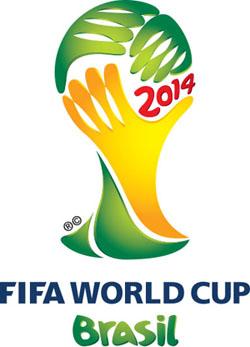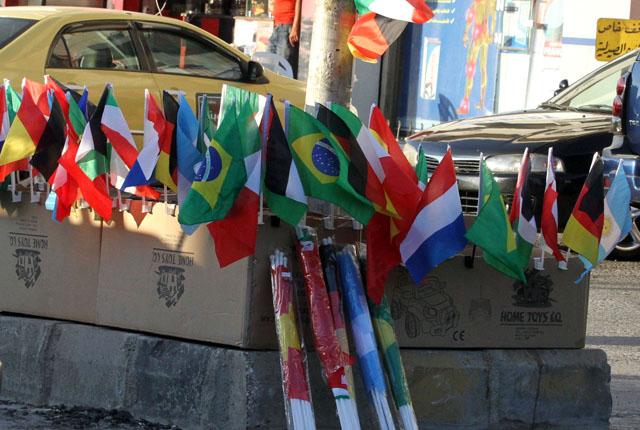You are here
Football fans bemoan ‘pricey TV subscriptions’ for World Cup
By Muath Freij - Jun 08,2014 - Last updated at Jun 08,2014

AMMAN –– Although Omar Silwani is an avid football fan, he will not be watching the 2014 World Cup matches.
Silwani said he cannot afford to buy the new subscription of beIN Sports channel and decided not to watch the quadrennial tournament for the first time.
“The price of this year’s subscription is ridiculously high and I have many expenses to meet,” he told The Jordan Times.
The 2014 Brazil World Cup kicks off on Thursday, concluding on July 13 and beIN Sports has the exclusive rights to broadcast the championship’s matches in the Middle East.
Silwani is one of several Jordanians who complained about the prices set by the network, formerly known as Al Jazeera Sports.
The broadcaster has adopted a new system to prevent the illegal decoding of its channels, a common practice in previous major football tournaments.
“The demand for the subscription is still normal and is expected to surge two days ahead of the tournament,” Smadi Electronics Deputy General Manager Shadi Khalil said.
Smadi Electronics is one of three agencies that sell beIN Sports equipment and subscriptions in the Kingdom, according to Khalil.
“However, prices are high and not affordable for most segments of society, so we expect slow business compared to the 2010 World Cup,” he told The Jordan Times in a recent interview at his office.
There are two kinds of subscriptions: The first costs JD275, is valid for one-year and includes a beIN Sports set-top-box; while the second is a three-month subscription priced at JD185.
These prices are set by beIN Sports, Khalil stressed, adding that “taxes contribute to increasing the cost in the Kingdom compared to other countries in the region.”
Commercial subscriptions, for use at cafés and restaurants, are usually more expensive than the standard family subscriptions.
“The price depends on the location of the outlet and what kind of business it is –– whether it is a restaurant, hotel or café,” Khalil noted.
“Prices start at $2,000 (around JD1,400). Sometimes, subscriptions range between $20,000 and $30,000 for five-star hotels,” he added.
Smadi Electronics tried to negotiate with beIN Sports to lower the subscription price to make it affordable, Khalil said, but “they refused our request, saying that prices are unified for all Arab countries”.
Silwani said he cannot even watch the matches at a café because some of them will start late in the night. The games will be held at 7pm, 10pm and 1am local time.
Ahmad Tamimi, a public sector employee, said although he is a big football fan, he cannot buy the new subscription because he has to make ends meet.
“Ramadan is approaching so I have to prepare for the occasion by stocking up on food items.”
Jordanians usually spend more money on food during the Muslim fasting month, which starts this year in late June.
Unlike Silwani and Tamimi, Mahmoud Khalileh will buy the new subscription despite its high price.
“I love football and the World Cup is my favourite contest. I don’t want to miss this important tournament,” said Khalileh, who has one daughter.
World Cup fever has also affected television sales, with the demand for new high-definition TV sets on the rise, according to Ayoub Adeeb, the director of Carrefour’s TV section.
He said demand for TV screens had increased by 60 per cent with the approach of the competition.
“Football fans and café owners are buying big TV screens because they like to watch the matches in high-definition quality,” he said.
Taiseer Omeiri, head of the sports section at Al Ghad Arabic daily, said when broadcasters first started encrypting their sports channels, Jordanians used to subscribe because the price was affordable.
“Now, only rich people can buy it,” he remarked.
“The only way to resolve this is to offer broadcast rights to public channels in the Arab world at affordable prices,” Omeiri said.
Abu Wissam, who owns an electronics store in east Amman’s Ashrafieh neighbourhood, said Jordanians used to buy special digital satellite receivers to illegally watch the matches.
“It used to cost them JD60 to get the receiver and watch the matches using the Internet,” he noted.
The shopkeeper said that although football fans can decode foreign channels, Jordanians prefer to watch the matches with Arabic commentary.
Related Articles
The World Cup fever is gripping the Kingdom as football fans are gearing up for the four-week-long contest and café owners bedecked their shops with the flags of the participating teams in preparation for the contest.
It cost Adel Mousa only JD2 to watch the 2014 FIFA World Cup.
HRH Crown Prince Hussein has directed the concerned agencies to install large flat-screen TVs at all of the Kingdom’s youth centres to enable young people across the country to watch the 2014 FIFA World Cup matches, the Jordan News Agency, Petra, reported.
















